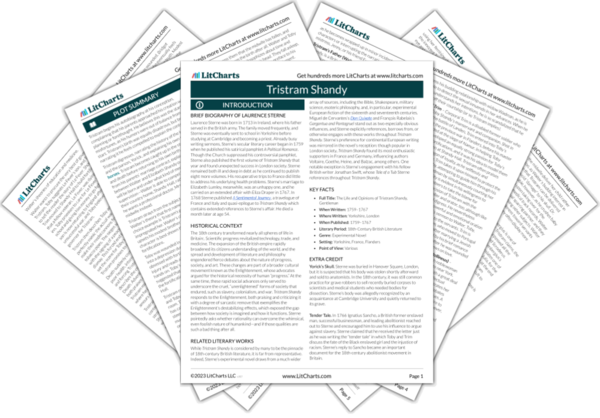Tristram’s history of the study of noses continues to mock the development of science and philosophy and the way theories are established by disproving the previously accepted theory, only to be disproved themselves in turn. Tristram cuts off his reflections, coyly blaming the actions of the other characters who, of course, he is in control of as the narrator. Trim’s demand that he be court-martialed, or tried in a military court, is plainly ridiculous, as the cow’s rampage was both out of his control, and Trim is not actually in the military anymore. Tristram’s insistence that he “must” tell the reader more about Slawkenbergius is also a sleight of hand, blaming the actions of his characters for his predilections as a narrator.
